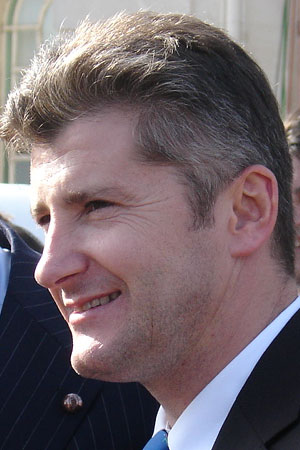Written By: Patrick He
General History
Modern-day Croatia did not exist until 1991. However, soccer was popularized in the region in the late 19th century, and the Croatian Football Association was formed in 1912 (“History” 1). After World War 1, Croatia, along with Slovenia and Serbia, formed the state of Yugoslavia, which eventually became a satellite of the Soviet Union. Thus, through this period, the Football Association of Yugoslavia was in charge of soccer in the country. However, in 1939, the Croatian Football Federation was formed again, and the national team played nineteen matches before being dissolved after Soviet takeover (“Croatian National Team” 1). After that, Croatia did not have an international team until forming one shortly before its independence in 1990. Croatia was admitted to FIFA in 1992 and UEFA in 1993. However, they were ineligible to participate in the 1994 World Cup since qualifying matches had already begun. In 1996, Croatia qualified for the European Championships held in England, where it reached the quarter-final, and in 1998, the team took third place at the World Cup in France (“Croatian National Team” 1). Since then, Croatia has failed to make the European Championships once (in 2000) and the World Cup once (in 2010). It has only exited the Group Stage once since then, however, where it reached the quarter-final in Euro 2008.
Croatia’s Golden Generation existed during the late 1990s. Led by players like Davor Suker, the team was successful internationally, and when they retired, the team saw a dip in form. However, Croatia now has another group of talented and experienced players ready to propel the nation to international success. Many of them played together in the national side under Slaven Bilic, who coached the team from 2006-12. Although he failed to win any trophies for the team, he was instrumental in rebuilding the side and developing much of the talent that will be ready to play this summer.

Davor Suker
Road to Qualification
In the Euro 2016 qualifying round, Croatia was placed into Group H with Italy, Norway, Bulgarian, Azerbaijan, and Malta. The team played consistently, starting off with three wins against Malta, Bulgaria, and Azerbaijan. In what was likely to be a group winner-deciding match, Croatia drew 1-1 against Italy on November 16, 2014. Italy was forced to defend for much of the game, and despite Italy scoring the opener, Croatia seemed the better side and equalized within five minutes. During the game, Croatia had 60% of the possession, more shots, and 83% more passes completed (“Italy Cling on to Hold Croatia” 1). In its next match, Croatia defeated Norway convincingly, with a final scoreline of 5-1, before facing Italy again in June 2015, this time at home. The stats were almost reversed in this match, with Italy dominating possession and pass completion, though Croatia did register more total attempts on goal. Once again, the match ended as a 1-1 draw After this game, however, Croatia saw a bad run of form, where it drew against Azerbaijan and then lost to Norway. The team did recover eventually, registering wins against Bulgaria and Malta in the last two games of qualification. Overall, Croatia finished qualification in second place with 20 points from six wins, three draws, and one loss, having had one point deducted (“Standings – Qualifying Round”). The team had the best goal differential in the group, scoring 20 times and only conceding five times.
One of Croatia’s best players during qualification was Ivan Perisic, a left-winger who plays for Inter Milan. He found the back of the net six times while also assisting three goals over just nine appearances (“Ivan Perisic” 1). A technically skilled player, Perisic is known for his pace, dribbling, and goal-scoring abilities. At 6’1”, he is also an aerial threat. However, he is weaker at passing, and despite his position as a wide playmaker, his pass completion percentage is relatively poor.

Ivan Perisic
How to cite this page: “Croatia History”, Written by Patrick He(2016). European Cup 2016 Guide, Soccer Politics Blog, Duke University, http://sites.duke.edu/wcwp/tournament-guides/european-cup-2016-guide/underrated-teams-of-euro-2016/croatia/croatia-history/ (accessed on (date)).
